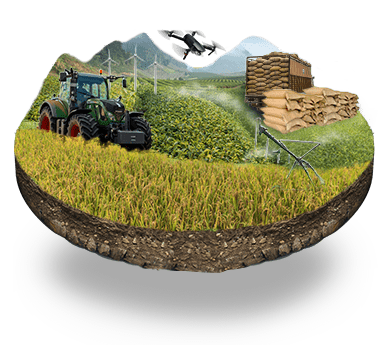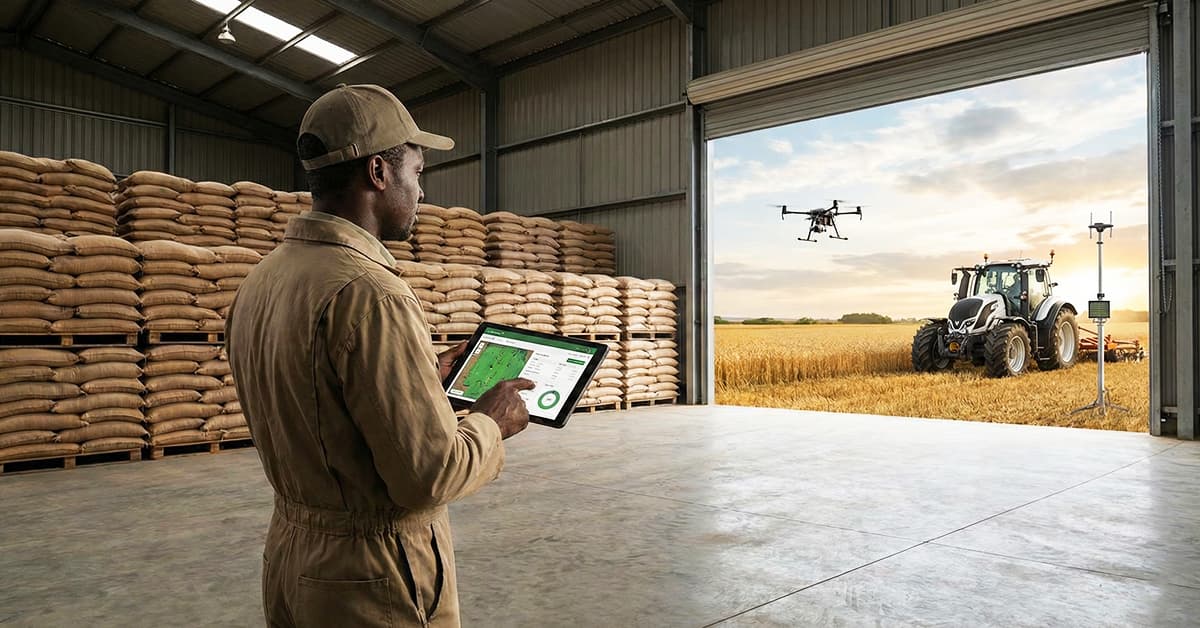Seeds are the foundation of agriculture, directly influencing crop yields, food security, and the livelihoods of farmers. A reliable seed certification system ensures that only high-quality, genetically pure, and disease-free seeds reach farmers’ fields. Globally, seed certification has evolved into a critical regulatory and digital mechanism that enhances transparency, fosters farmer confidence, and integrates local seed systems into global markets. The Organization for Economic Co-operation and Development (OECD) Seed Schemes and the International Seed Testing Association (ISTA) standards now serve as global benchmarks for seed quality and trade facilitation. Countries such as the U.S., the Netherlands, and India have developed comprehensive systems that integrate digital traceability, genetic purity checks, and farmer access to certified seeds, enhancing productivity and export competitiveness alike.
In India, for example, the National Seed Certification System utilizes ICT tools to track seed batches throughout the supply chain, while in the European Union, harmonized certification rules facilitate the seamless cross-border movement of seeds, solidifying its position as a global agri-business leader. For Africa, where agriculture employs nearly 60% of the workforce, building robust seed certification systems is not just a matter of policy but a cornerstone of sustainable growth.
.jpg)
Africa’s Seed Certification Landscape
In Africa, the seed sector faces both opportunities and challenges. On one hand, the continent’s agricultural potential is immense, with vast arable land and a growing demand for food. On the other hand, only 20% of farmers currently access improved or certified seeds, resulting in lower productivity compared to global averages.
Several regional organizations, including the African Seed Trade Association (AFSTA) and the Alliance for a Green Revolution in Africa (AGRA), are advocating for the harmonization of seed laws and certification frameworks. Initiatives such as the ECOWAS Seed Regulation in West Africa and the COMESA Seed Harmonization Program in Eastern and Southern Africa are notable steps toward regional standardization. Yet, implementation remains uneven, with fragmented national policies, weak inspection systems, and limited digital adoption slowing progress.
Challenges:
Despite policy advances, African seed certification systems face multiple hurdles:
- Infrastructure Gaps: Many countries lack modern seed testing laboratories, quality assurance facilities, and inspection mechanisms.
- Limited Digitalization: Manual record-keeping and paper-based certification processes create inefficiencies, delays, and risks of fraud.
- Smallholder Constraints: Most small-scale farmers rely on informal seed markets, limiting their access to certified seeds and reducing trust in formal systems.
- Regulatory Fragmentation: National-level differences in certification rules hinder regional trade, even under AfCFTA aspirations.
- Financial Barriers: Seed companies often face high costs and regulatory burdens in getting new varieties certified, slowing innovation.
These challenges have direct consequences: lower yields, vulnerability to pests and climate shocks, and missed opportunities in agricultural trade.
Why Africa Needs Strong Seed Certification Systems?
Seed certification is far more than an administrative process—it is the backbone of agricultural transformation in Africa. Certified seeds deliver higher yields, improved pest and disease resistance, and greater climate resilience, enabling farmers to withstand unpredictable weather and crop challenges. When farmers know they are planting seeds that have been tested and verified, their confidence in investing in better inputs and farming practices increases dramatically.
Beyond the farm level, strong certification frameworks can serve as a passport for regional integration. Harmonized systems allow improved varieties to move seamlessly across borders, unlocking the full promise of the African Continental Free Trade Area (AfCFTA). This has a direct impact on food security: wider adoption of certified seeds reduces dependency on imports and builds resilient, locally driven food systems.
Equally important is the role of certification in attracting investment. By creating a transparent and reliable environment, certification systems encourage private companies to invest in seed research, introducing improved varieties that meet the continent’s unique needs.
Implementing Seed Certification Systems in Africa
Transforming Africa’s seed sector requires more than good intentions; it demands a holistic, technology-driven approach. The use of Blockchain, artificial intelligence, and IoT can make certification tamper-proof and fully traceable, providing regulators, traders, and farmers with visibility into the seed’s journey from breeder to field. This digital backbone ensures accountability and strengthens trust across the value chain.
Policy alignment is equally critical. By harmonizing national frameworks with regional and international standards, African countries can break down regulatory barriers that currently hinder cross-border trade. Once aligned, certified seeds can flow freely across markets, providing farmers with a broader range of high-quality options.
Capacity building must complement these reforms. Inspectors, seed companies, and even farmers need to be trained in using digital platforms and quality protocols. This ensures that the system works not just on paper but in practice. At the same time, public-private partnerships bring together governments, seed producers, research institutions, and technology providers to build scalable solutions tailored to local realities.
Finally, linking certification platforms with financial institutions can unlock credit for both seed enterprises and farmers, reinforcing the business case for formal seed systems. Taken together, these measures can create certification systems that are transparent, inclusive, and globally competitive, positioning Africa to meet both its food security goals and international trade aspirations.
.jpg)
CSM Technologies’ Expertise in Seed Certification
Drawing from its experience in Africa’s agri-digital space, CSM Technologies has been a trusted partner in building integrated seed certification and traceability systems.
We have developed a web-based MIS for the Bihar State Seed and Organic Certification Agency (BSSOCA), which is a unified database of seed growers and seed-producing agencies, making it easier to manage farmer registrations, field inspections, lab tests, and seed certification processes. The system is operational across 38 districts in the state of Bihar.
CSM also developed the Seed Certification System for the Ministry of Agriculture in Ethiopia to streamline the certification process, enhance service delivery, and improve the efficiency of seed management nationwide. The same system was implemented for the Seed Certification & Plant Variety Protection System (SC PVP) by KEPHIS in Kenya to monitor seed quality, track seed lots from production through to market distribution, and improve compliance.
Such digital frameworks not only strengthen national certification systems but also position African countries to align with global standards, enhance farmer adoption, and unlock opportunities for regional and international seed trade.
Concluding…
Seed certification systems are more than regulatory mechanisms—they are catalysts for Africa’s agricultural transformation. Globally, certified seed ecosystems have proven their ability to enhance productivity, strengthen farmer trust, and drive export growth. For Africa, the urgency is apparent: fragmented, manual, and under-resourced certification systems are no longer sufficient to meet the continent’s food security and trade aspirations.










































We will verify and publish your comment soon.